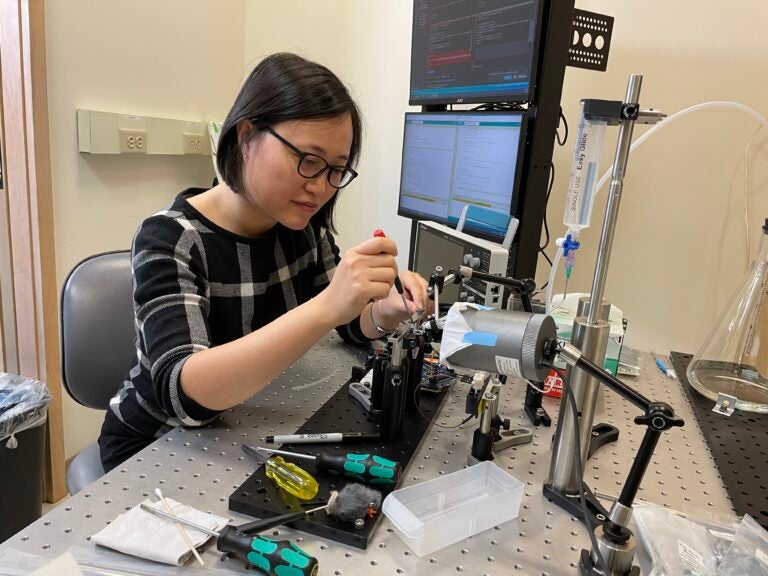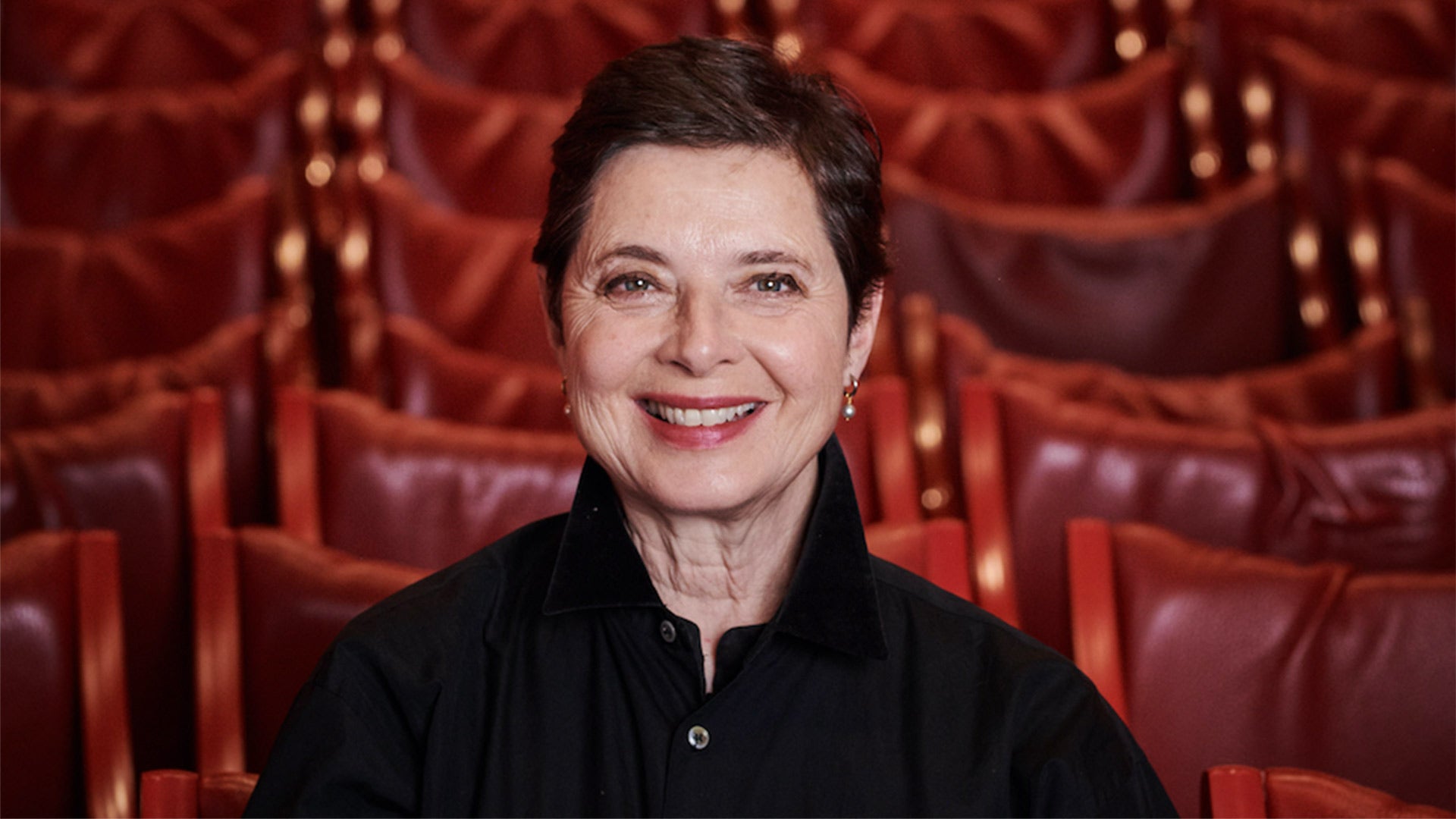Humans convey a wide range of emotions through facial expressions. But emotions aren’t inherently human. Anyone with a pet dog or cat knows that animals also use facial expressions to communicate with us and each other. Why have these emotions and facial expressions been conserved throughout evolution?
That is what famed Italian actress Isabella Rossellini explores in her new witty and provocative one-woman show, Darwin’s Smile. The show comes to Cold Spring Harbor Laboratory’s (CSHL’s) Grace Auditorium for a two-day run on Saturday and Sunday, March 4–5, 2023. Written and performed by Rossellini, the play takes inspiration from The Expression of Emotions on Man and Animals by Charles Darwin, the father of evolution.
Darwin’s Smile brings together theater and science to explore empathy—a necessity for the art of acting and the study of animal behavior. “It seemed that these two interests of mine were both distinct and separate: one satisfied my heart, while the other satisfied my brain,” Rossellini says. With comically colorful costumes and props, she shows audiences how acting can help us understand animals and vice versa.
Isabella Rossellini acts out the mating behavior and life cycle of salmon in an episode of her YouTube comedy series Seduce Me.
“I loved it,” says Helen Hou, an assistant professor and neuroscientist at CSHL. Hou attended the show’s Long Island premiere on August 12, 2022. “That love of animals, love of science, and her bold capturing of it is just so fun and inspiring.”

Hou’s laboratory specializes in studying natural behavior, such as facial expressions, and the brain circuits that control them. “The face is really a window into our mind,” she says. “We can tell a lot about a person, what they’re trying to communicate, and how they’re doing from their facial expressions. And as Darwin illustrated, many of our facial expressions are shared among animals.”
The Hou team uses mice to explore how different stimuli trigger a range of facial expressions. “When mice taste bitter food, they shut their eyes and grimace,” Hou says. “This is just one example of the rich tapestry of facial expressions rodents display, controlled by many of the same facial muscles we have. We want to understand how the concerted movements of these muscles make up complex facial expressions linked to different emotions and social information, using cutting-edge technology in neuroscience and machine learning.”
Hou believes a better understanding of how the brain ticks can have applications in mental health. “In children with autism spectrum disorder, for example, the appearance and timing of facial expression is atypical,” says Hou, “This is something we’re interested in understanding.”
Like Hou’s research, Rossellini’s acting explores facial expressions and emotions to make revelations about the human condition. Her offbeat and playful new show transforms complex science into entertaining lessons that will leave audiences more attuned to the nuance of nonverbal communication. Hou says:
“I was really happy to see such a talented actor taking on this problem at the interface of arts and science and animal behavior—things that [are] really dear to my heart and inspire curiosity and the sense of wonder in anyone. So I would invite people to come watch [Darwin’s Smile] if you want to leave with this sense of wonder and start observing your cats more {laughing}.”
CSHL will host a special performance of Darwin’s Smile at Grace Auditorium on March 4, with doors opening at 5 p.m. The show starts at 6 p.m., followed by a reception and Q&A with Rossellini led by Hou. An encore performance (sans Q&A and reception) will be held March 5, with doors opening at 3 p.m. and showtime at 4 p.m. Click below to reserve your tickets today.
Isabella Rossellini’s Darwin’s Smile at CSHL (March 4, 2023)
Isabella Rossellini’s Darwin’s Smile at CSHL (March 5, 2023)
Written by: Luis Sandoval, Communications Specialist | sandova@cshl.edu | 516-367-6826
